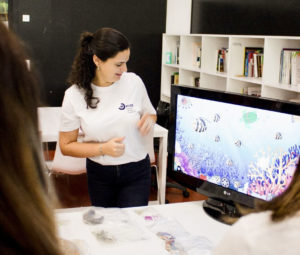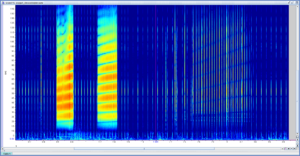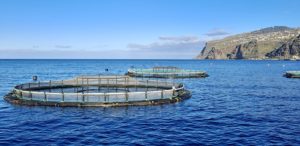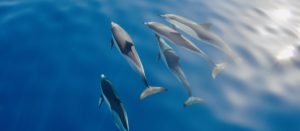Citizen science, scuba diving and the economics of environmental health
Matej is one of our collaborators here at MARE-Madeira and living proof that you don’t need a degree in marine biology to make a positive contribution to ocean research and conservation! A nature-lover and scuba-diver from Slovakia with a PhD in economics and a former career in management consulting, Matej eventually found his way to Madeira…and us. He’s now the first author of a paper that seeks to increase the impact of citizen science and aid coastal monitoring of marine species.

So, Matej! Tell us about the paper.
The paper is about citizen science and the Dive Reporter app that Marko, Becas (João Monteiro) and their teams developed for gathering data about marine biodiversity. It’s an app for scuba divers, more specifically for dive centers, dive guides and instructors to use during their post-dive debriefings and report sightings of target species.
What’s the main problem that the app is solving?
Today, there isn’t enough data on marine biodiversity and on how it is changing around the world. And there simply aren’t enough scientists or funding to do scientific dives every month in enough locations to figure it out. While there are some apps that use ‘opportunistic’ citizen science — apps that anyone can use to record any species they see — these have a lot of biases and inconsistencies. For example, people may only record the species they find interesting, or may not record all their sightings after every dive. Our Dive Reporter app tries to mitigate some of that. Being targeted at the dive centers and dive guides, it offers greater consistency in reporting. It also uses a list of species of interest for marine scientists, which reduces personal bias.
What’s been the dive center response?
We did a survey at the beginning of the program to gauge their interest and the dive centers responded pretty positively. They think their clients will find it interesting, for one thing. For another, the dive centers can see the impact their responses have in real-time. This will allow the dive center to see, for example, where they have the highest chance of seeing a dusky grouper or a sea turtle, and this is of real value for them. Quite a few centers were also concerned about the health of ocean ecosystems and saw our app as a means to help a good cause.
What other things can the data be used for?
Over time, we’ll have long-term data that will enable us to spot changes in species abundance, so we can see the impacts of anthropogenic pressures, invasive species, climate change or conservation measures. For example, in Madeira the barred hogfish has been recently put under protection, in addition to the already-protected dusky grouper. With this app, we’ll be able to see if their numbers are recovering over time or not. For non-indigenous species like the gilt-head seabream, which was introduced to Madeira from aquaculture, we can see if their numbers plateau, or if they continue to grow and take space from other fish whose numbers decline.
How does the app compare to a scientific dive in terms of data quality?
Of course, a fun dive with tourists is never going to be as comprehensive as a scientific dive with transects – that’s next-level in terms of data quality. But transects are costly to do and for now, we can go to a place once a year, twice if we’re lucky. The data from the Dive Reporter is hopefully going to be more continuous. And because the dive masters are usually experts on the marine species on their ‘home reefs’, they also provide a high guarantee of accurate species recognition.
Who can use the app?
We give access to any dive center who is interested in using it, and all we need is half an hour to train the dive masters to use it. For now, it’s just used by dive centers in Madeira as we only have the list of target species for Madeira loaded into the app, but in theory it can be used anywhere in the world. If institutes, researchers or NGOs in other locations want to use it, for example, the list of species and dive sites can be adapted and they can have their own monitoring program with local dive centers. This is the good thing about the app, it’s very flexible, simple and intuitive to use.

How did you get involved?
It all started when I came to Madeira for holiday during Covid. I’ve wanted to do something in marine biology for a long time, but I’d been dismissing it because I don’t have a degree in it. But when I came to Madeira, I reached out to MARE-Madeira to ask about volunteering opportunities. João (Canning-Clode) said yes, let’s have lunch and after a while, they reached back out to me and said they needed someone to lead on this project. They needed help testing the app and gathering feedback from dive centers. After I did that, the team invited me to be lead author on the paper. I said yes and I’ve stayed in Madeira ever since. I want to see where this can go.
So…what is next?
I’d like to write another paper on the economic valuation of fish in marine protected areas (MPAs). Doing something related to ecosystem services like this makes the most sense for me since I studied economics — it’s my unique skill here. I’d also like to train as a scientific diver as I would like to join in those activities.
What’s fun about diving around Madeira?
First, it’s pretty cool to be diving in the Atlantic Ocean — it feels so vast. I also like the landscape of Madeira underwater. Since it’s volcanic, you have these big rock features and caves. I also like that Madeira is a nice place to live — there are a lot of places in the world that have amazing diving, but for most of the ones I’ve visited, I wouldn’t want to live there long term.

Matej (right) joining Gonçalo and Laura on some MARE-Madeira field work
Turning back to your skill set and unique experiences outside of marine biology: what do you think are the main differences between the business world and scientific world?
I like the scientific world because it’s very creative work and the people you meet and get to work with are really interesting. I think in the business world you’re more likely to find people who are interested in being successful financially, and that’s not a topic that captures my attention. I like to talk to the people here. They’re working on interesting things and they’re passionate about the ocean. The business world is definitely better in terms of resourcing, though, as it has enough money to hire people to share responsibilities and workload. Here, yes, you get to do something you find fun, but you have to dedicate a lot of time and energy to it. If you need to do something, you probably have to learn to do it yourself. Most researchers have to learn coding, for example, even if they’re biologists, because otherwise they won’t get the data they need. In the business world, work is…softer. Well, unless you’re in management consulting or investment banking where the culture of intense stress is kept alive for reasons I don’t understand! But in progressive companies like I work for now, you have a big push for work-life balance and mental health.
Let’s tap into your economic knowledge for a minute. How do we balance the economy and the environment?
My real opinion? I don’t think you can balance it in the current system. Not really. The current economic system’s goal is the maximization of profit. If something is done for the environment, it’s only done as a way to maximize profit, so it will always play a minor role. Currently, the goal is for GDP to always grow and profits to always grow, but I don’t think we want this anymore. These measures don’t reflect real value created. If you had a different economic system where we focused on real value instead of profits – like, that people are healthier and better fed – then that goes very much hand in hand with the goals of conservation and sustainability. But if the goal is maximization of profit, then I don’t think we will ever look after the environment as we should.
What do you think is needed to economically incentivize the protection of the environment?
I think that would require a new economic system, one where we’d measure value differently. Where we’d measure all the benefits that a company creates or costs it causes. Because companies now — take fishing, for example — globally, the fishing industry is set up to maximize profit but that often comes at an immense cost through habitat destruction by bottom trawling*, stock depletion by overfishing and threatening other species by unintentional bycatch. But these costs are not counted anywhere. They are real costs to the ocean, and therefore to us, but no-one pays for them. If you measured both the costs and the benefits of all a company’s activities, we’d have a better way of knowing who is actually creating value and who is decreasing value on a global scale. Of course, it would not be easy to measure. I’m not saying there’s a practical solution today. But understanding how ecosystems work can help us measure more of our impacts on them. This is where research comes in.
To end on a positive note(!), now that you’re in the world of marine research, what are the most interesting things you’ve learned?
I always learn a lot whenever Marc (Fernandez) is talking about something! For example, oceanography is something I don’t know much about. Marine biology and animals that are charismatic – I like to read about that in my free time, so I know a few things. But oceanography and how currents work and how hurricanes are created, upwellings and downwellings and all the features in the ocean? This is very interesting and it’s something that influences a lot of things on a large scale. I’ve really enjoyed learning about that.
*Note: there isn’t bottom-trawling in Madeira – this is a general list of global problems.
Further reading
Buzinkai et al. (2023). Crowdsourcing biodiversity data from recreational SCUBA divers using Dive Reporter. Ecological Informatics, 77. https://doi.org/10.1016/j.ecoinf.2023.102191.

